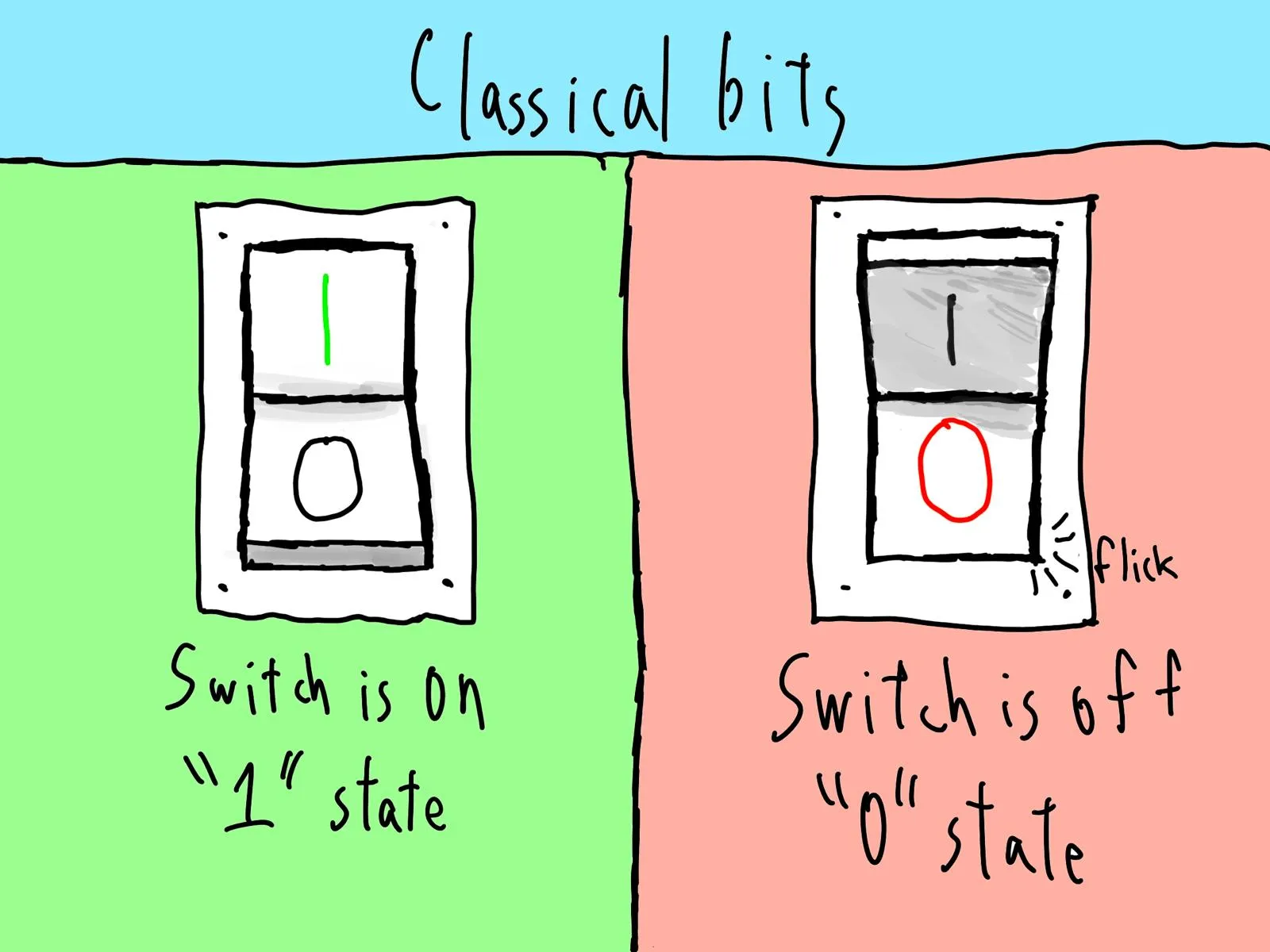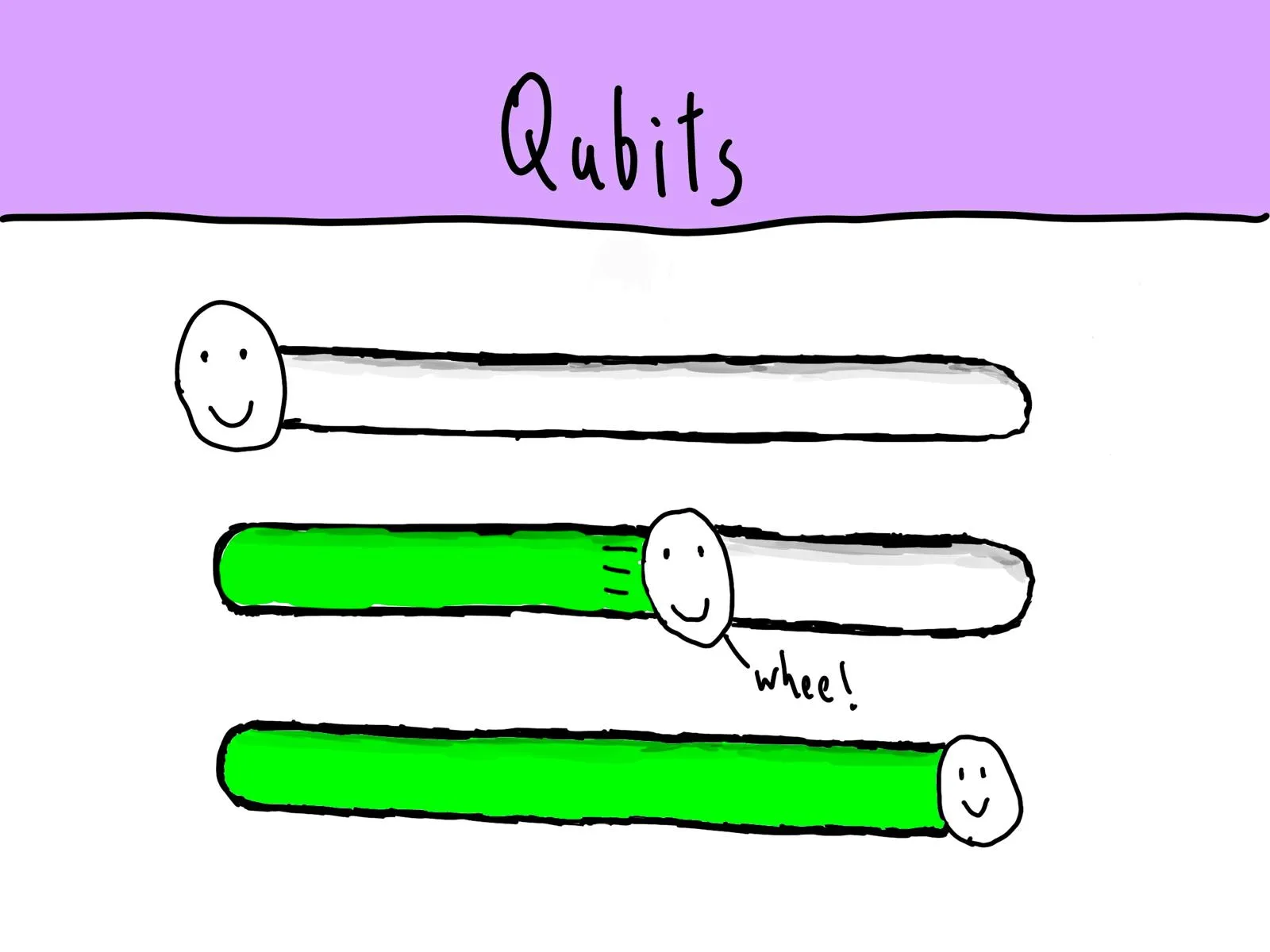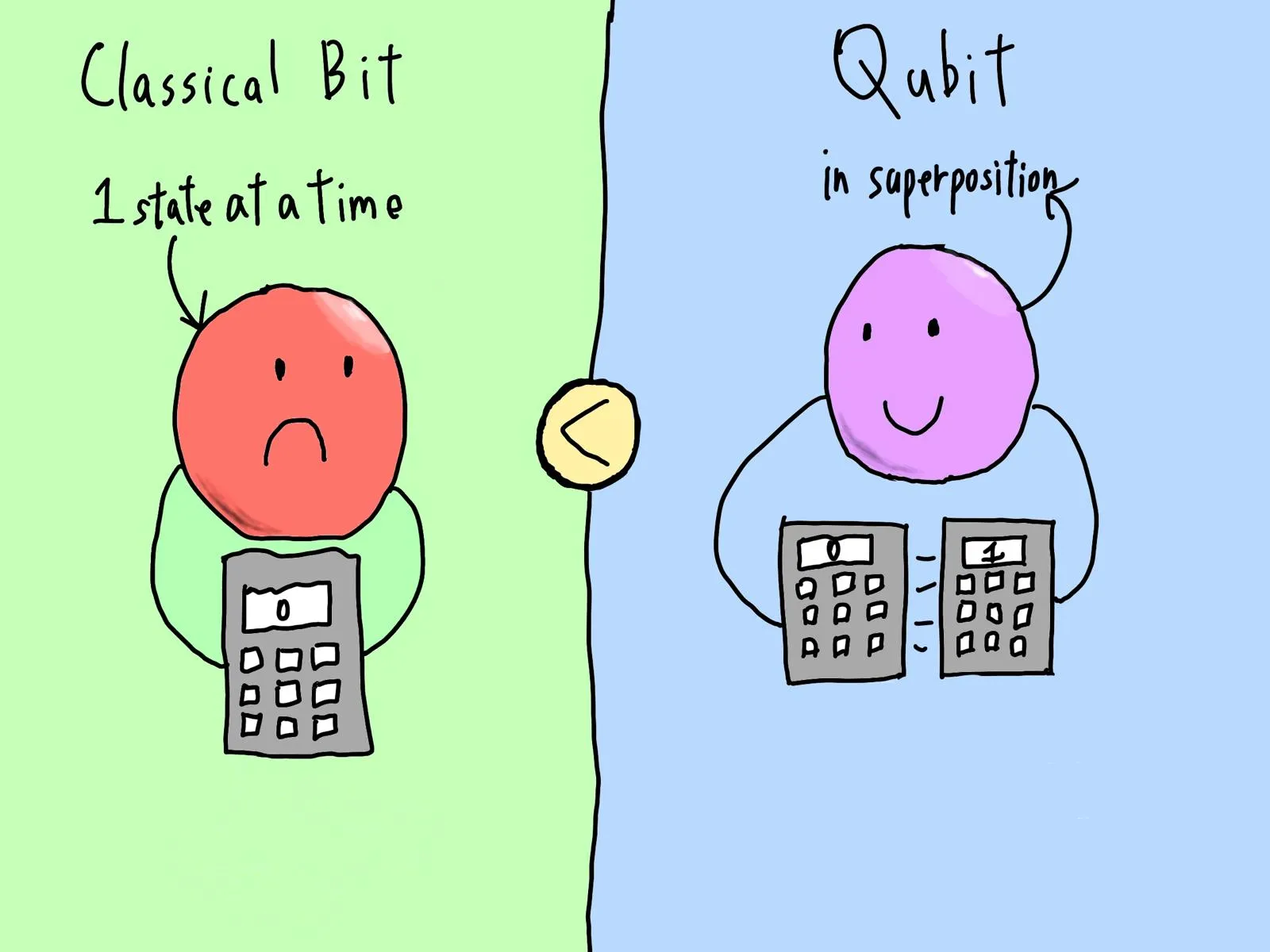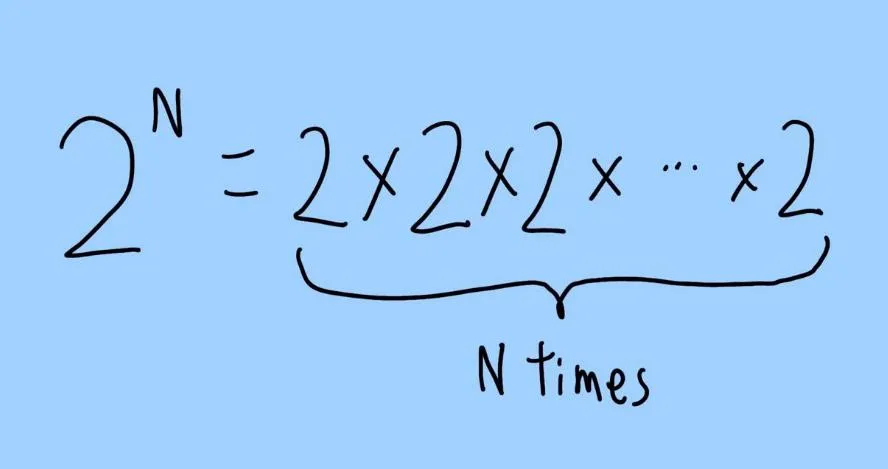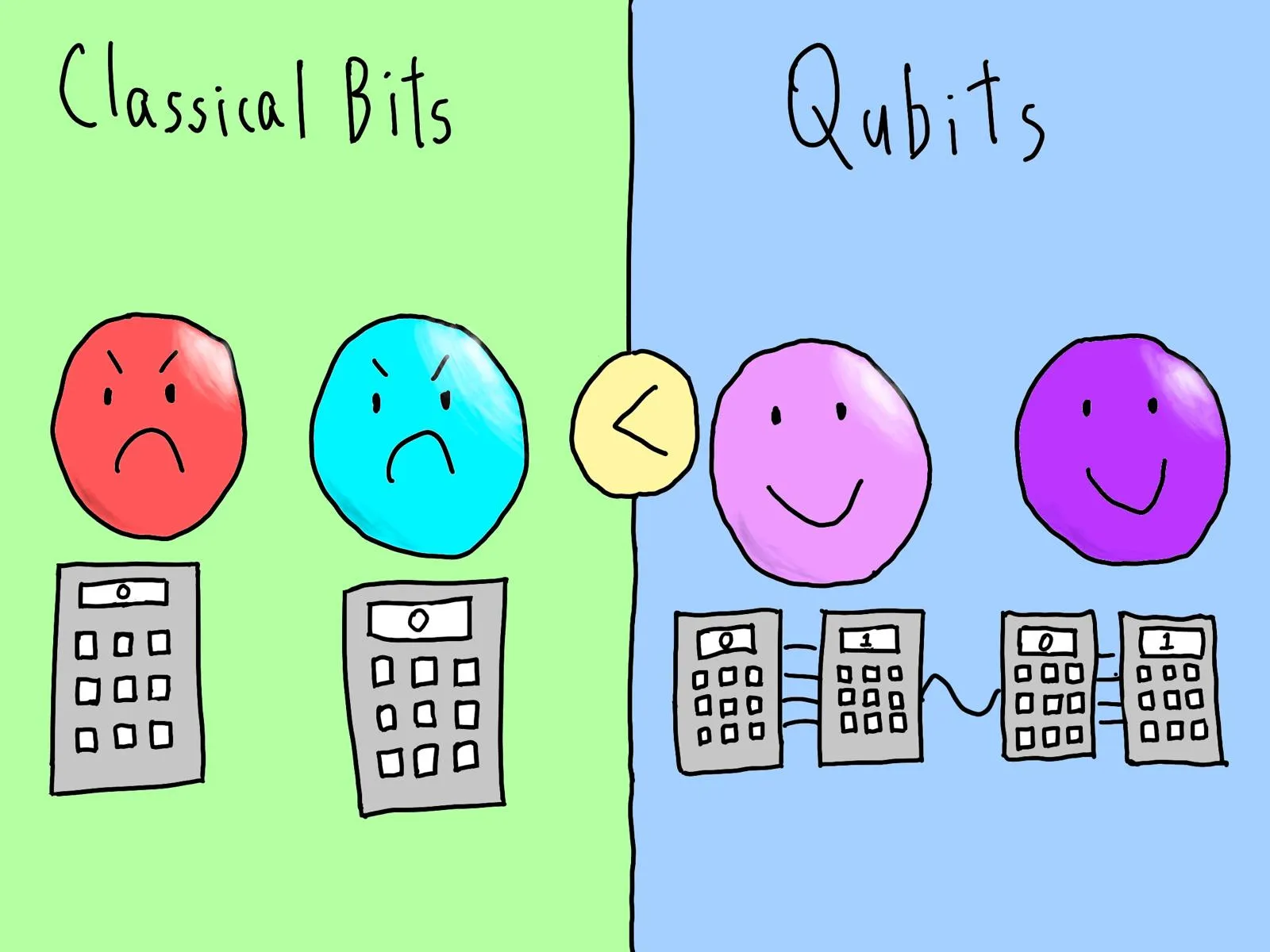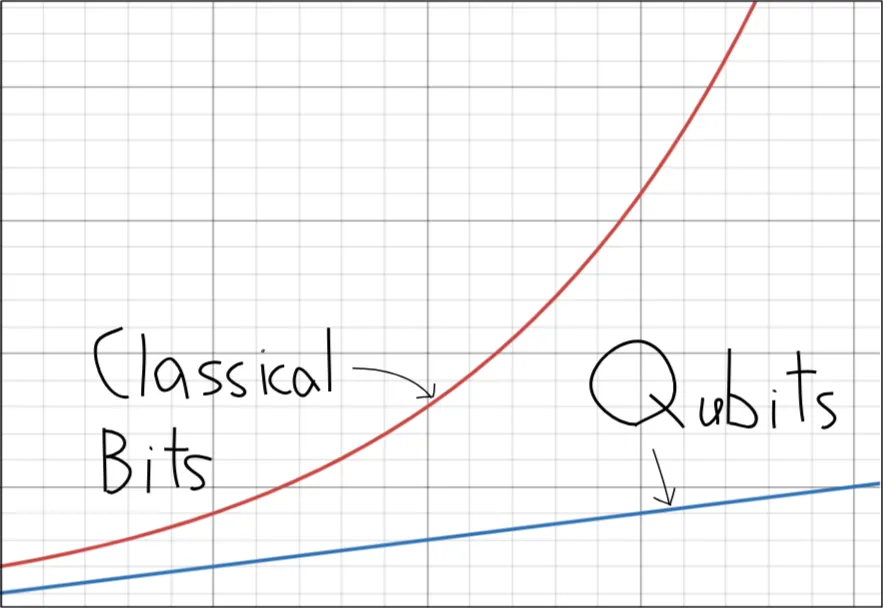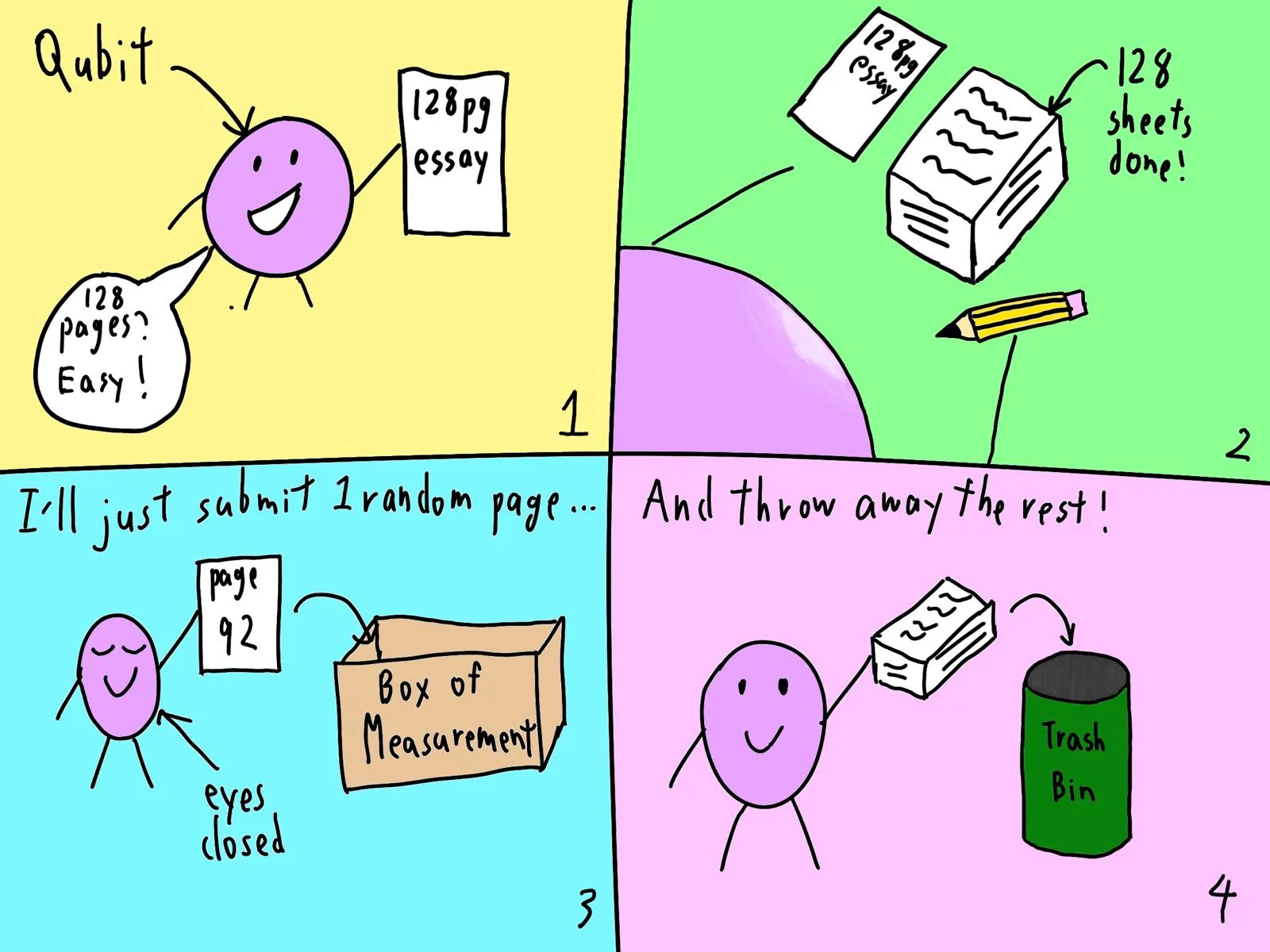Quantum Computing for High Schoolers
Introduction
Hi, I am Jaydon, a recent high school graduate interning at pQCee. This article is part 1 of a series on quantum mechanics for high schoolers and below. The other articles are:
- Further explanation of superposition and how Hadamard gates work
- Intro to entanglement, CNOT gate
Classical bits vs qubits
Classical bits are used in classical computers and act like switches. They are either on or off.
Quantum computers use qubits instead. They are like slide bars.
“Off” and “on” are referred to as the “0” and “1” states respectively. Both qubits and classical bits can be in the 0 or 1 state, however, qubits can also be in a superposition of these states. This is like being in the middle of the slide bar.
Advantage of using qubits
Classical bits are either 0 OR 1. In other words, they can only be in 1 state at a time. Qubits can be in a superposition of 2 states at once, representing 0 AND 1. By representing more states, calculations can be sped up.
How much better?
\(2^N\) classical bits are needed to represent the same number of states as N qubits.
A qubit in superposition (2 states at once) and 2 classical bits (1 state at once each) represent the same number of states at a time.
How about 2 qubits? There are 4 combinations of 0 and 1 with 2 digits (00,01,10,11). The qubits can be in a superposition of all 4 states and by the same logic, 4 classical bits represent just as many states at once.
With each additional qubit, the number of states doubles. With a few qubits, their advantage is not significant. However, when the number of qubits increases, the number of classical bits needed to represent the same number of states becomes very large.
The catch
While qubits can perform calculations quickly, when we try to check the results we can only get one of them and the rest are lost forever.
For example, 7 qubits can represent 128 states at once (\(2^7\)=128). When we measure the results however, we can only measure the result of 1 calculation for 1 state (e.g. 1100101). This limits the usefulness of quantum computers so they cannot replace classical computers in many cases.
Conclusion
Quantum computers may be faster than classical computers in theory because qubits can represent more states than classical bits. However, their uses are pretty niche due to qubits collapsing into a definite state when measured, so don't expect quantum computers to replace your laptop.
Acknowledgements
Much of my knowledge and inspiration regarding this quantum computing series came from the book "Quantum Computing for the Quantum Curious" (Hughes et al., 2021). It was very helpful in explaining concepts in quantum mechanics and quantum computing to high school students.

